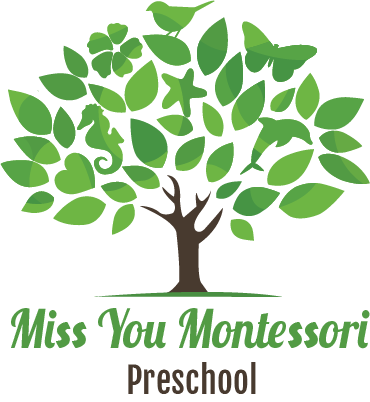What is Montessori Education?
Nowadays in Malaysia, there are more and more options for parents to choose from when it comes to choosing a preschool system for their children ages 2 to 6. These options include the Standard National Preschool Curriculum (KSPK), the Montessori Method, the Waldorf curriculum (also known as the Steiner curriculum), the Reggio Emillia Method, and the British curriculum.
The Montessori curriculum is one of the most widely used programs for preschool education and is commonly available in Malaysia. In this article, we are going to talk about Montessori Education – the basic concepts, its educational theory, and how it can help in the optimal development of your children for future life. We hope that you can have a deeper understanding of Montessori Education after this.
About Montessori Education
Montessori education is a method of childhood education founded by Dr. Maria Montessori for children with learning and developmental disabilities. She later adapted this educational method into a childhood educational program for children with normal cognitive abilities and development.
Montessori education is a childhood education approach that emphasises on developing the different aspect of child development in a prepared environment. This approach encourages children to develop strong cognitive, social interaction, social development, creative development, and emotional skills.
While the non-Montessori education method only emphasises developing the academic skills in a child, Montessori education is a method of education that believes in the important concept of developing both human development and the natural development of its students in classes at the same time.
The Montessori method focus on child-led learning – it creates an organized and structured educational environment where children can pursue areas of their interest. The Montessori method aims to help children develop independence, confidence, creativity, and self-motivation. Unlike conventional education approaches, Montessori education has a set of programs to encourage the development of independence in learning where children can direct their learning through self-directed activities and practical life activities in classes. This program helps children to become enthusiastic lifelong learners through experiential learning.
By allowing a child to lead in the learning process, the Montessori method strengthens his/her natural desire for learning. This is different from the traditional method and traditional school setting. Just as we find it easier to learn about things of interest to us, a child finds it easier to learn about subjects of interest to him or her. That’s not to say they can’t learn about another subject, it is just harder when their mind is not primed for it.
Montessori Principles
To foster a student-centered learning environment, the typical Montessori classroom incorporates the following elements:
- Freedom of movement and freedom of choice for the children.
- Structure and order in the arrangement and sequence of the classroom materials.
- The classroom environment is designed to be attractive, warm, and inviting.
- Educational materials that provide active learning experiences.
Montessori Curriculum Structure
The Montessori curriculum can be broken down into the following categories:
- Practical daily life skills including social skills.
- Sensorial training using sensorial learning materials.
- Motor skills control and motor coordination.
- Mathematical concepts.
- Language and Literacy.
- Wide range of Cultural Subjects – Geography, History, Natural Sciences, and Experimental Sciences.
- Creative Subjects – Art and Craft, Music and Movement, Drama.
However, a typical lesson can incorporate one or several of these activities for children depending on the direction of the child’s choice of activity.
Key Strengths and Benefits of Montessori Education
Here are some of the key strengths and benefits of Montessori education:
- It fosters independence and encourages independent learning, unlike traditional classrooms.
- The teacher plays a very unassuming role in the classroom. The children are not motivated by the teacher, but by the need for self-development.
- The multi-age classrooms (children ages typically 2/3 to 6 years old) allow younger children to learn specific skill sets from older children who have mastered them.
- It focuses on concrete learning instead of abstract learning because children need to learn concepts through hands-on experiences.
- It provides a prescribed range of activities for children to choose from themselves.
- It gives children the opportunity to work through tasks at their own pace without interruption.
- It is a child-centered environment. All of the materials are easily accessible. Children are taught to take care and be responsible for the materials they use.
Miss You Montessori
Miss You Montessori is a preschool offering an affordable Montessori program for children ages 2 to 6. We are located in Ara Damansara, Petaling Jaya.
We strive to develop each child’s potential through meaningful learning experiences in a happy, safe and encouraging atmosphere.
- Montessori Curriculum
- Bilingual Immersion Program
- Thematic Integrated Curriculum
- Excellent Teacher-Student Ratio
- High-Quality Learning Space
- Global Citizen Education
Contact us now to know more about what we can offer for your child.
